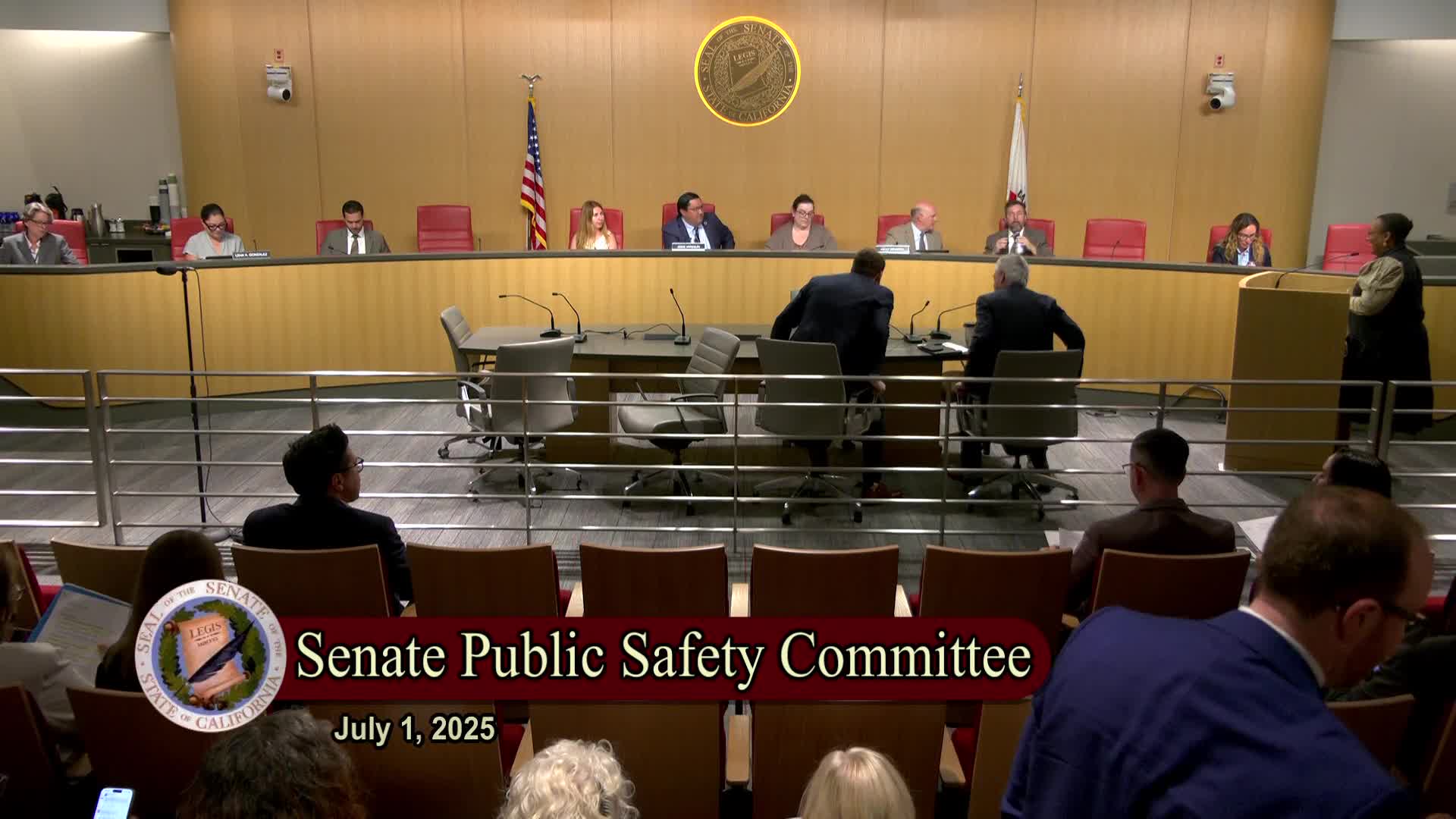Article not found
This article is no longer available. But don't worry—we've gathered other articles that discuss the same topic.
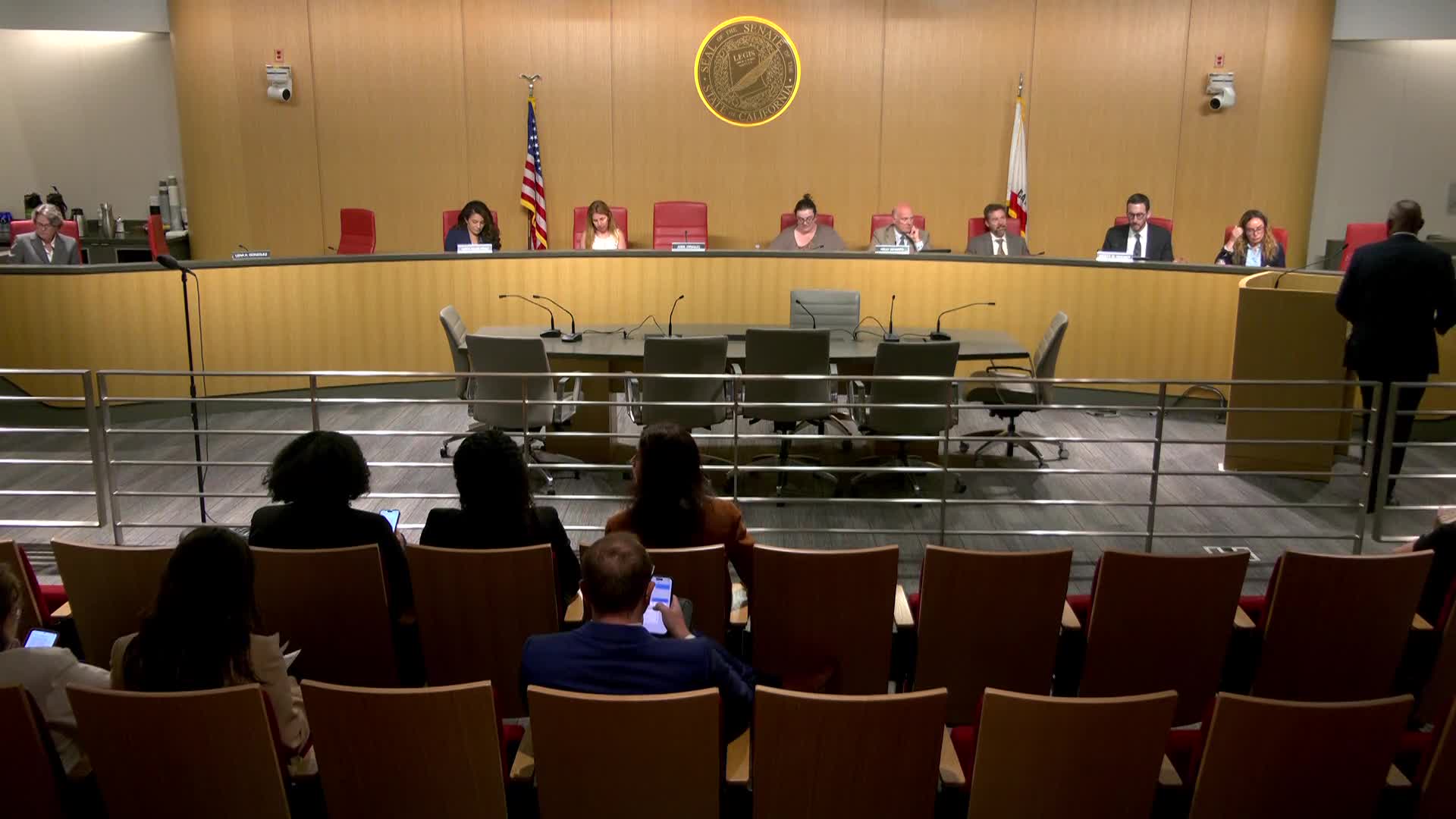
AB 1263 targets ghost‑gun manufacturers and online facilitation; attorney general sponsors bill
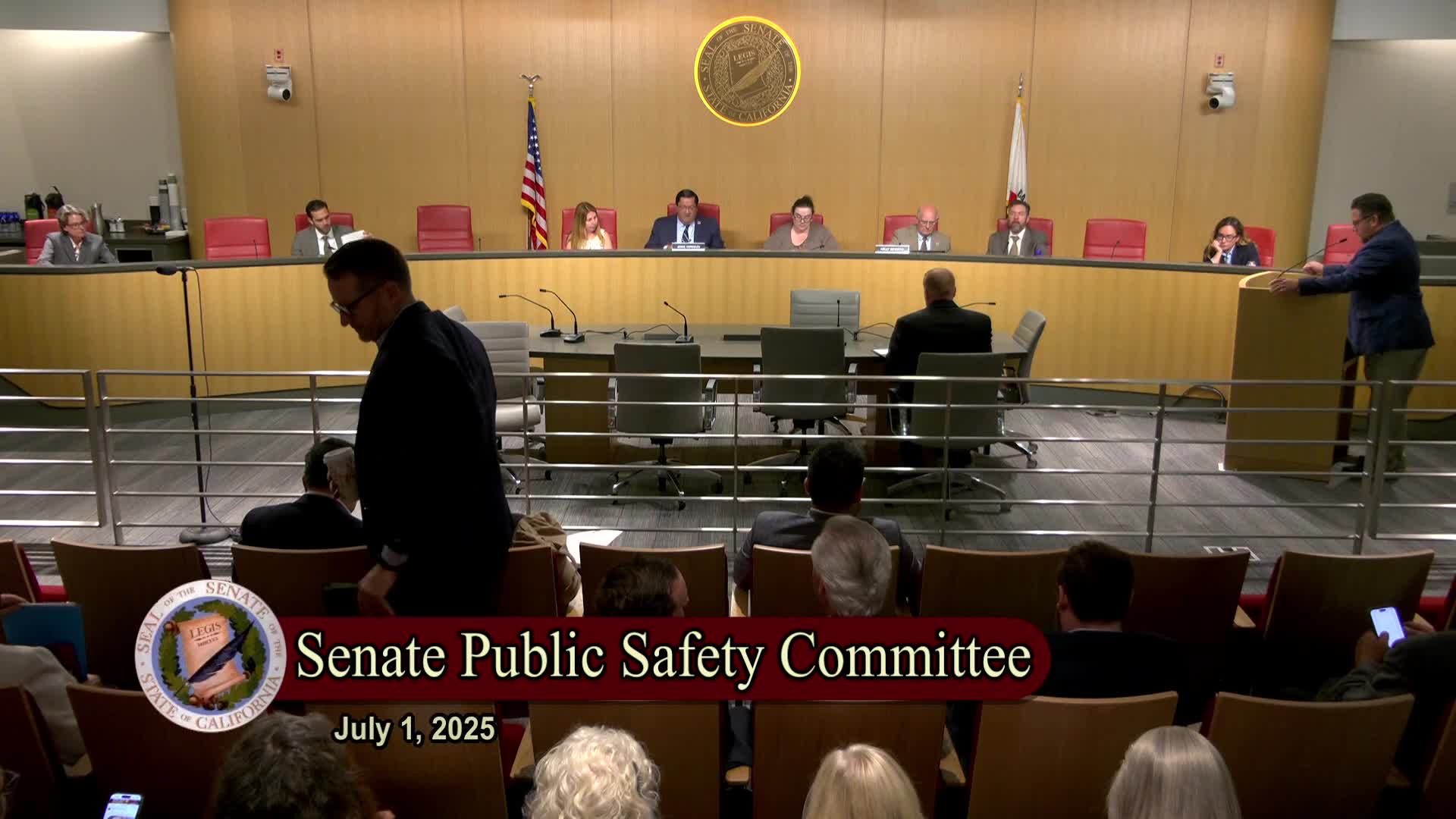
Committee hears AB 528 to limit duplication and removal of child sexual abuse material from secure evidence

Senate panel hears AB 237 to broaden threat statute covering sensitive places
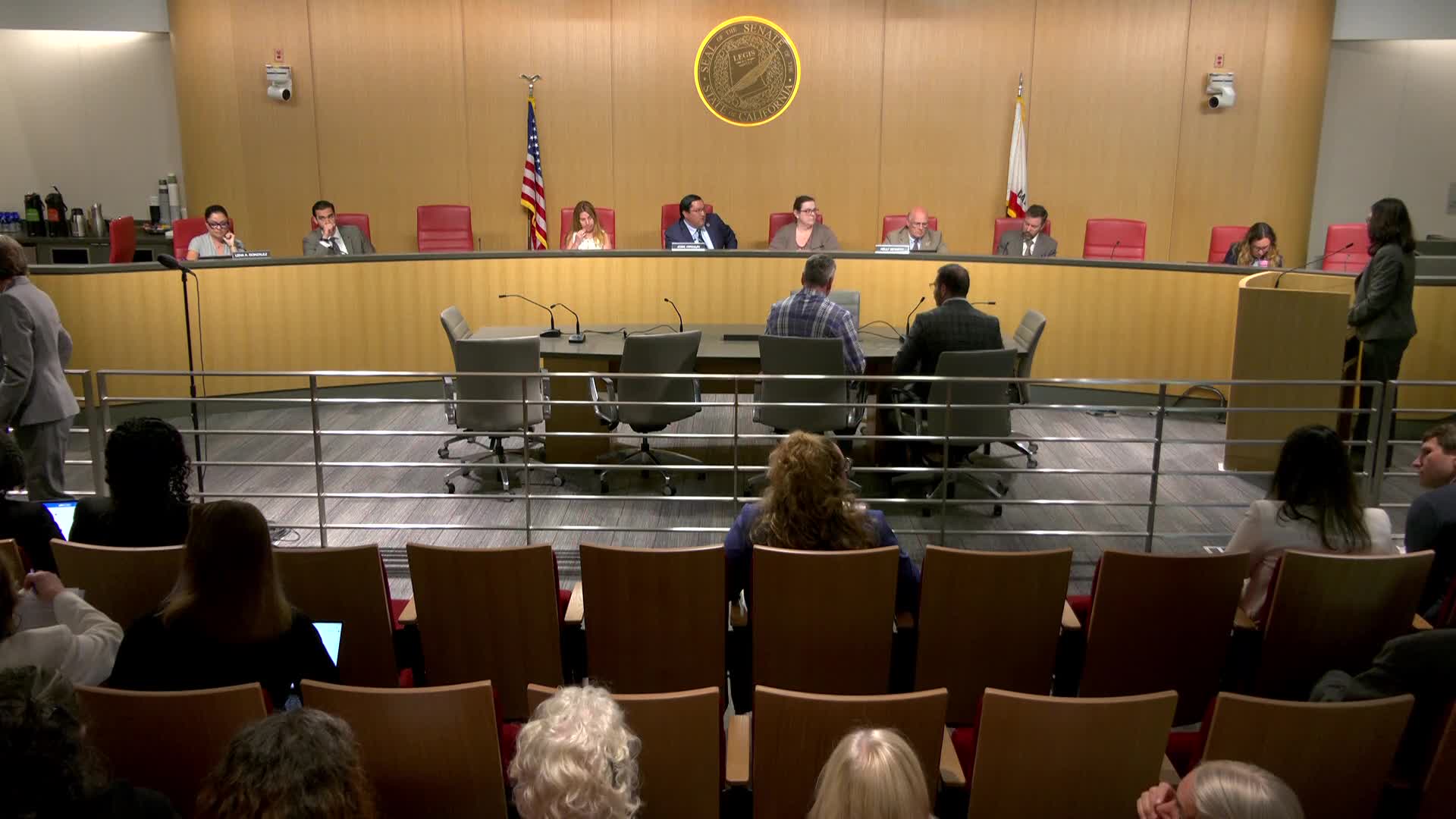
AB 400 would require POST canine standards statewide; supporters call for consistency, opponents seek deeper reform
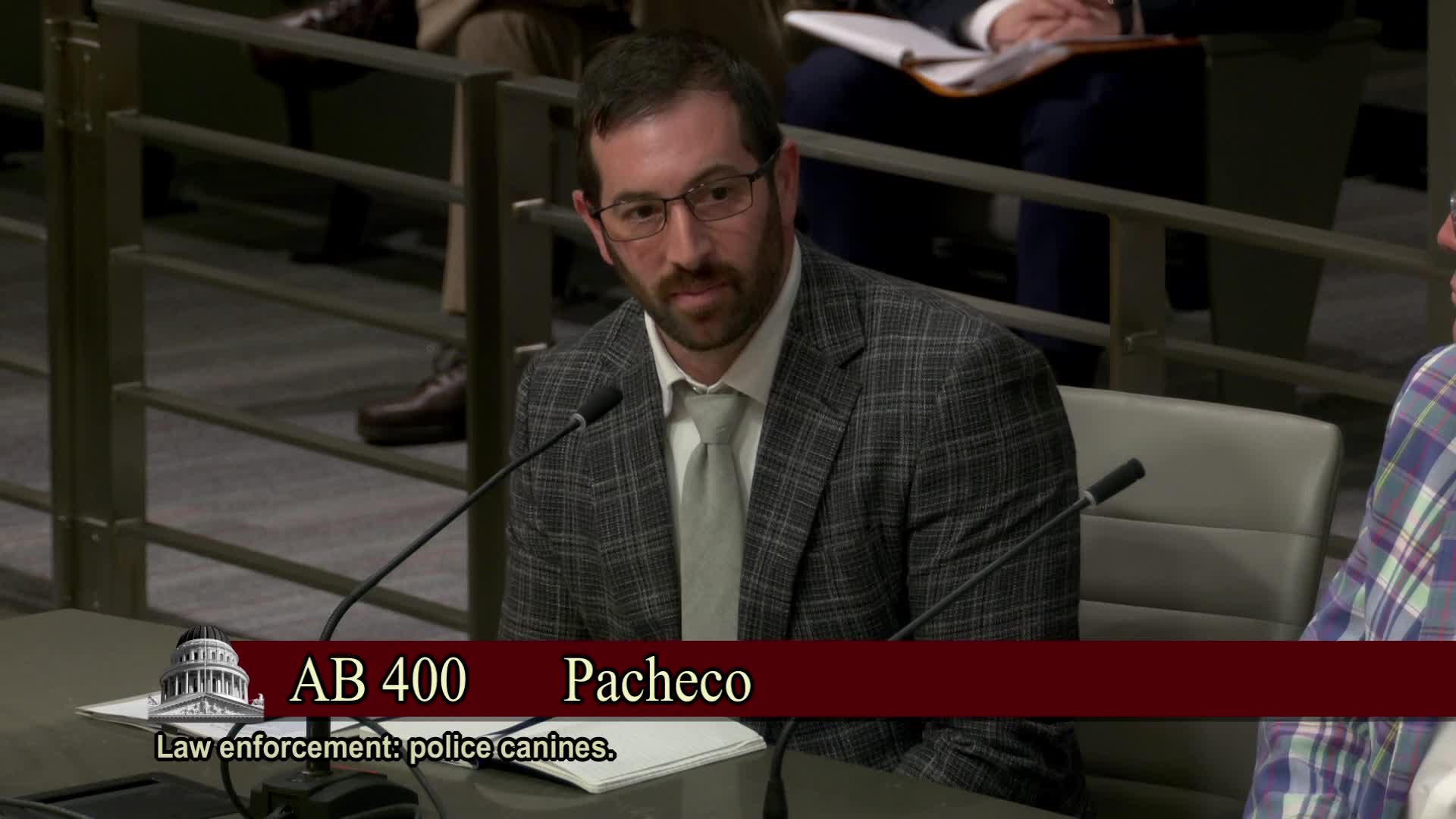
AB 82 would expand privacy protections for reproductive and gender‑affirming care; authors say it counters out‑of‑state targeting
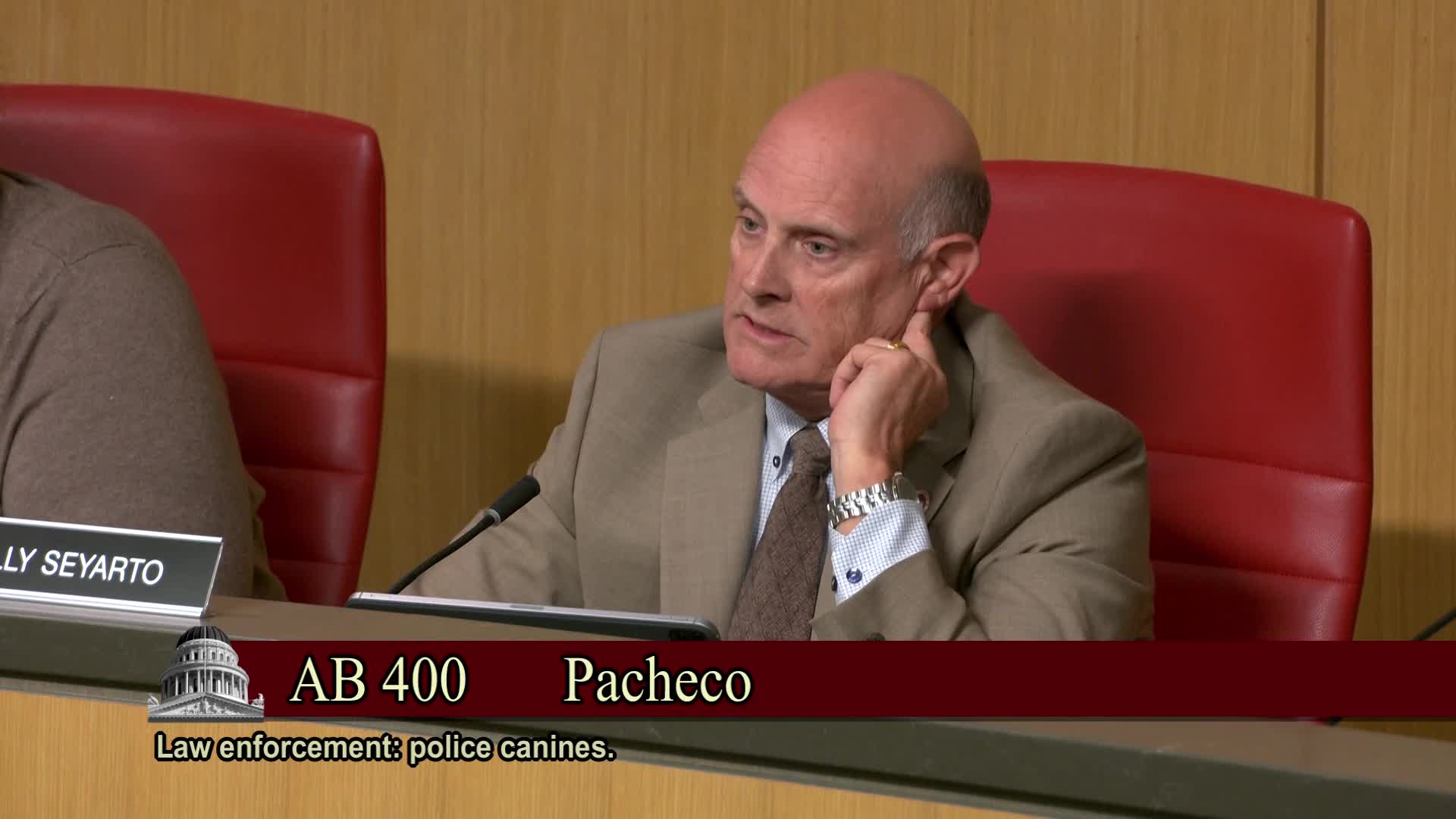
Author seeks to limit most‑generous early‑release formula for offenders convicted of child abuse resulting in death
